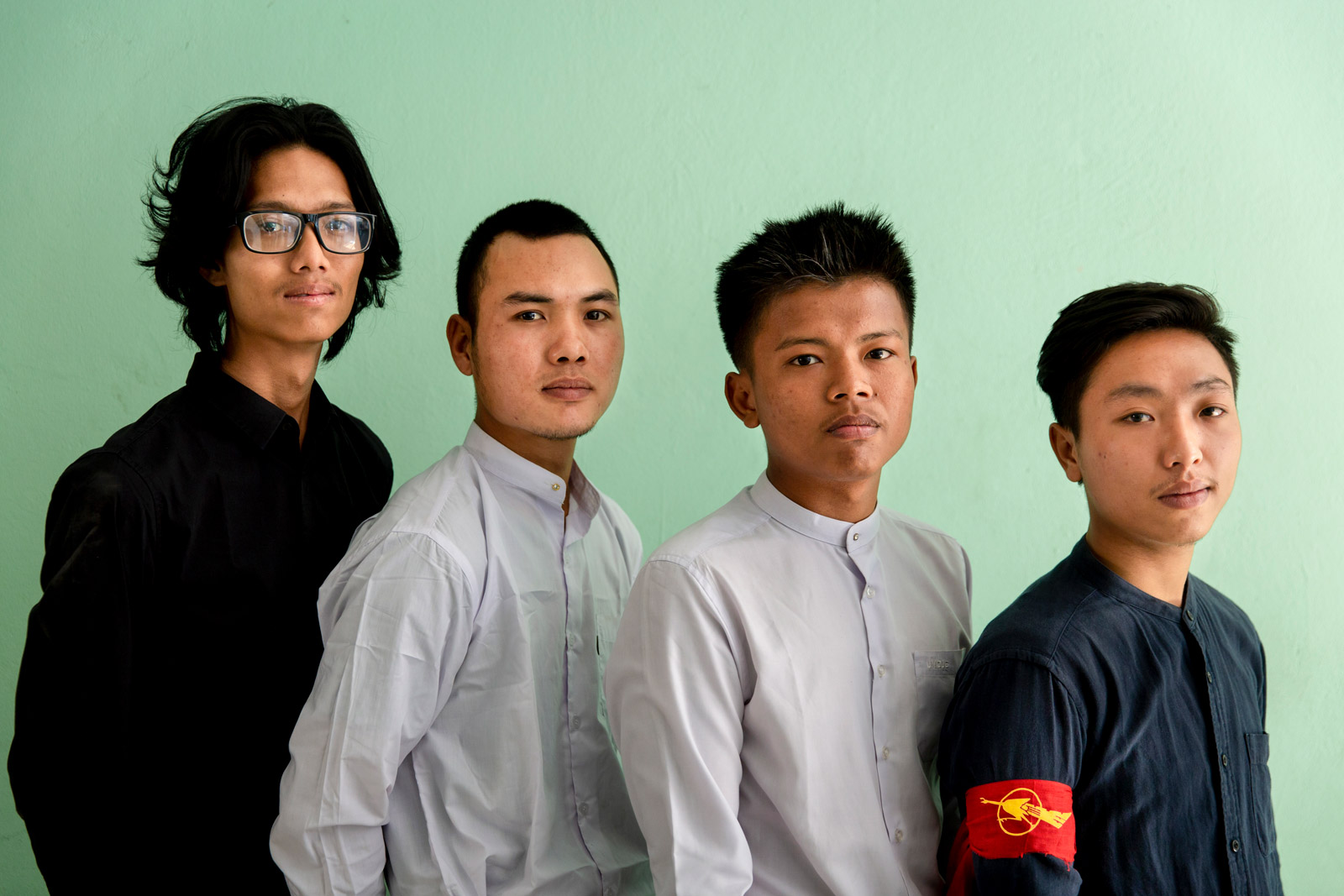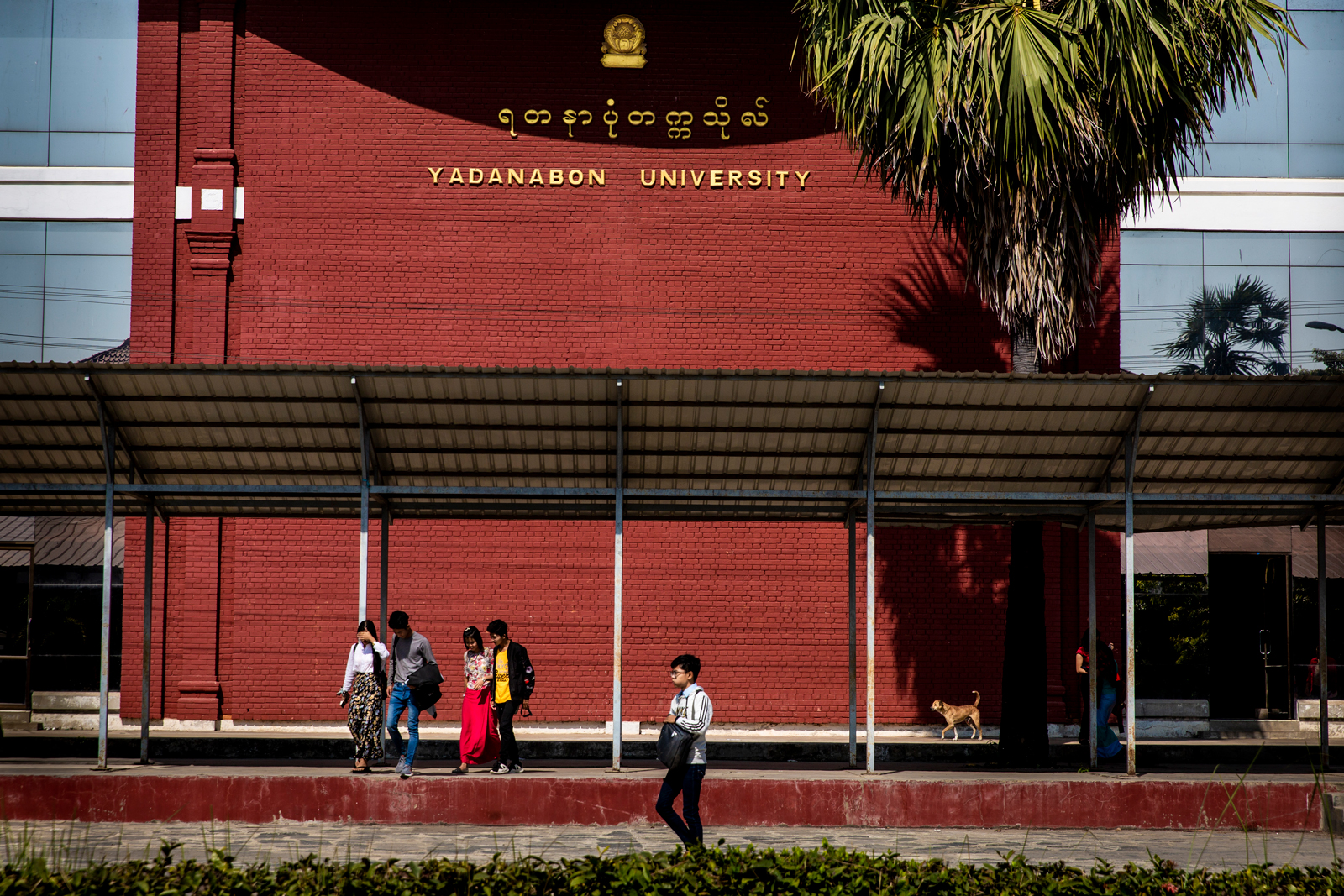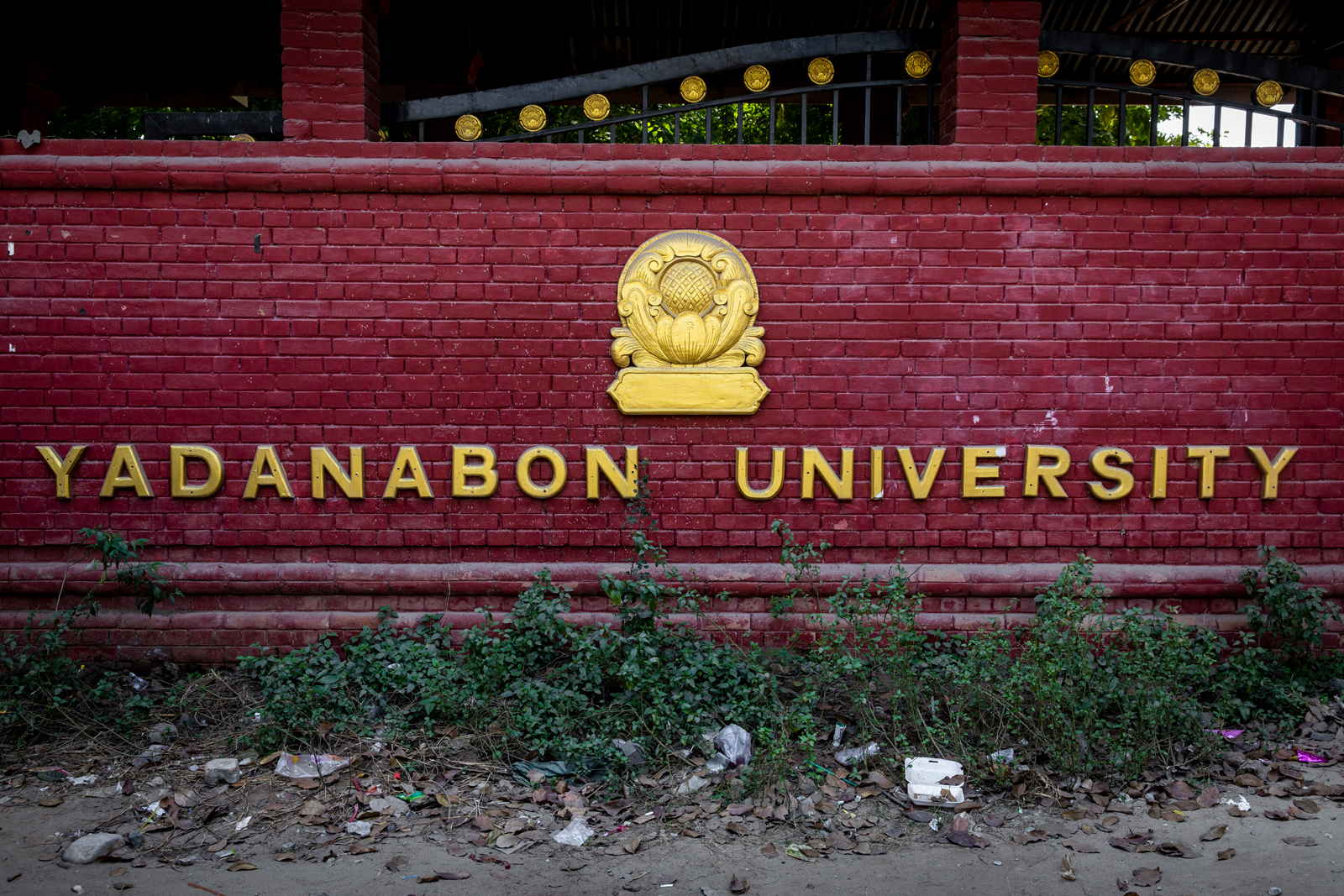The findings of a year-long investigation were published on April 23, detailing the unjust imprisonment of student activists in Myanmar and painting a canvass of the widespread detainment of political activists under the country’s oppressive peaceful protest law.
The joint investigation by NGOs Fortify Rights and Athan provides an extensive look into the imprisonment of seven students following protests that took place between November 2018 and January 2019 at Yadanabon University, Mandalay.
The student protesters at Yadanabon were part of the All Burma Federation of Student Unions (ABFSU), an umbrella organisation of Myanmar’s student unions and an active voice for academic freedoms and student rights.
After protesting for increased security measures and utilities at the university after a spike in student murders in Mandalay, seven of the protesters were arrested and sentenced to three months in prison in February 2019 for violating the Peaceful Assembly and Peaceful Procession Law.
The case is emblematic of broader restrictions on freedom of expression and peaceful assembly in Myanmar, as well as the lack of recourse for former political prisoners and others arbitrarily detained.
When Aung San Suu Kyi’s National League for Democracy (NLD) party took office in early-2016, over 100 of its members of parliament were once political prisoners themselves as members of Myanmar’s 8888 Uprising generation. Myanmar’s first democratically elected, civilian-led government since 1962 was accompanied by an air of hope that the space for freedom of expression and assembly would steadily expand.
In a time when hope reigned, only disappointment has since abounded. There has been a failure to amend some laws used against speech and assembly, and a number have actually been strengthened. While the NLD-dominated parliament did amend the Peaceful Assembly and Peaceful Procession Law in October 2016 to remove some of its most severe restrictions on protest, it still reigns today as a tool to suppress dissent.
The latest proposal to amend the peaceful assembly law remains pending before Myanmar’s lower house, with over a 100 political prisoners – from student protesters to a satirical poetry group called the Peacock Generation – still behind bars.

This happens all under the guise of the Peaceful Assembly Law, which is the primary tool that the Myanmar government use to suppress political protests
Jacob Bogart, an author of the report and legal fellow at Fortify Rights
Jacob Bogart, an author of the report and legal fellow at Fortify Rights, told the Globe that Fortify Rights highlighted this case as it illustrates the extent to which the 2016 assembly law facilitates the suppression and imprisonment of peaceful protesters.
“What happened here is unfortunately not an isolated case, there are many examples of crackdowns on peaceful demonstrations and protests,” Bogart said.
“This happens all under the guise of the Peaceful Assembly Law, which is the primary tool that the Myanmar government use to suppress political protests.”
Bogart explained that Article Four of the Peaceful Assembly Law “includes a number of requirements that must be submitted before a group is entitled to hold a protest”. These include personal information on the protesters, the specific location of the protest, how many individuals will be present as well as what slogans and chants will be used.
“In theory this is just a notification to the government, not a requirement,” said Bogart. “But in practice it acts as a necessary requirement to get approval for a protest.”

The students did not submit this notification, similar to many other organisers across Myanmar.
“Many are suspicious of the government and view the notification as a way to deny the right to protest,” said Bogart. “They chose not to submit – they were protesting against the law and by not submitting the relevant information it was an act of protest in itself.”
While Chapter Four of the law lays out the requirements to host a peaceful protest, Chapter Seven, Article 19 sets out the punishment when those requirements have not been met.
The seven students were each handed a three-month prison sentence. Soon, a nightly practice of playing chess and singing songs to pass the time was established among the students, but on one of these nights, four testified that prison guards had beaten and assaulted them.
“A guard pulled my arms from the back so I couldn’t move while another guard hit my face and kicked my chest,” Myo Chit Zaw, one of the imprisoned students, explained to the investigators. “Two guards were pulling me from the back while two others were kicking, beating me – the guards also beat my back with a truncheon.”
An enquiry into the beatings was carried out by the government but, at the time of writing, no results have been published or disclosed, while the prison warden on the night of the beatings has since been given a promotion.

The report calls for as yet unmet recompense for those unjustly detained in Myanmar, such as an official apology from the government, compensation and the guarantee of non-repetition.
“It’s incredibly unfortunate that people who speak their minds in Myanmar often are subjected to prison time because of it,” said Bogart. “This has become the new normal in Myanmar, but it is wrong.”
With the potential of an outbreak of Covid-19 within Myanmar’s prison system, the report also demands a significant rethink of the imprisonment of peaceful protesters in the country.
Many arbitrarily detained now find themselves at greater risk as their incarceration makes them susceptible to the novel coronavirus. Even though Myanmar released nearly 25,000 prisoners as part of an unprecedented presidential pardon on April 17 to stem the spread of Covid-19 inside jails, at least 182 political prisoners remain behind bars.
“Right now, with Covid-19, we wanted to draw attention to the fact that political prisoners who should never have been jailed in the first place are being put at great risk,” Bogart said. “It adds insult to injury.”


